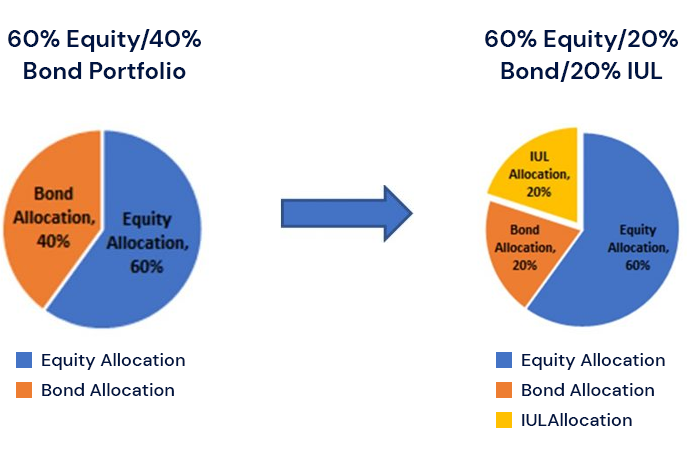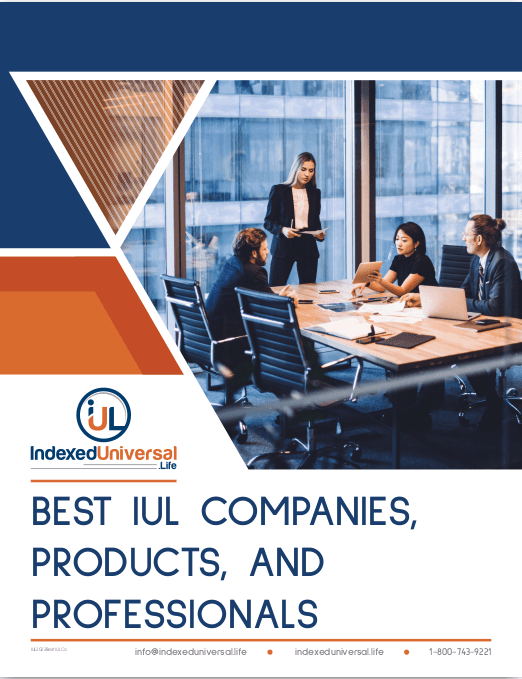All Categories
Featured
Table of Contents
1), frequently in an attempt to defeat their group averages. This is a straw male debate, and one IUL people love to make. Do they contrast the IUL to something like the Vanguard Overall Supply Market Fund Admiral Shares with no lots, an expenditure ratio (EMERGENCY ROOM) of 5 basis points, a turnover ratio of 4.3%, and an exceptional tax-efficient document of distributions? No, they contrast it to some awful actively managed fund with an 8% tons, a 2% ER, an 80% turnover proportion, and a terrible document of temporary resources gain distributions.
Mutual funds frequently make yearly taxable distributions to fund owners, also when the value of their fund has actually gone down in value. Shared funds not only need earnings coverage (and the resulting yearly taxes) when the common fund is going up in value, but can likewise impose revenue taxes in a year when the fund has dropped in worth.
You can tax-manage the fund, gathering losses and gains in order to decrease taxed circulations to the capitalists, yet that isn't somehow going to change the reported return of the fund. The possession of shared funds might need the common fund proprietor to pay estimated tax obligations (best variable life insurance).

IULs are easy to position to ensure that, at the proprietor's death, the beneficiary is not subject to either income or estate taxes. The exact same tax obligation reduction strategies do not work almost too with mutual funds. There are numerous, commonly expensive, tax obligation catches related to the timed trading of mutual fund shares, catches that do not use to indexed life insurance policy.
Opportunities aren't very high that you're going to undergo the AMT as a result of your common fund distributions if you aren't without them. The rest of this one is half-truths at ideal. For example, while it holds true that there is no income tax obligation as a result of your successors when they inherit the earnings of your IUL policy, it is likewise real that there is no income tax obligation because of your heirs when they acquire a common fund in a taxable account from you.
Allianz Iul
There are much better ways to avoid estate tax problems than buying investments with reduced returns. Common funds might trigger income tax of Social Safety benefits.

The growth within the IUL is tax-deferred and might be taken as free of tax earnings using financings. The policy proprietor (vs. the shared fund supervisor) is in control of his/her reportable earnings, hence allowing them to minimize or also remove the taxes of their Social Security advantages. This one is wonderful.
Here's an additional very little issue. It holds true if you purchase a mutual fund for claim $10 per share simply prior to the distribution day, and it disperses a $0.50 circulation, you are then going to owe tax obligations (most likely 7-10 cents per share) in spite of the truth that you haven't yet had any kind of gains.
In the end, it's truly concerning the after-tax return, not how much you pay in taxes. You're likewise probably going to have more cash after paying those taxes. The record-keeping requirements for having shared funds are dramatically much more intricate.
With an IUL, one's documents are maintained by the insurance firm, duplicates of annual declarations are sent by mail to the owner, and circulations (if any kind of) are totaled and reported at year end. This is additionally sort of silly. Of program you need to maintain your tax obligation records in case of an audit.
Difference Between Whole Life Vs Universal Life
All you need to do is push the paper right into your tax obligation folder when it reveals up in the mail. Hardly a reason to purchase life insurance policy. It resembles this guy has never ever bought a taxed account or something. Common funds are typically component of a decedent's probated estate.
On top of that, they are subject to the hold-ups and costs of probate. The profits of the IUL plan, on the other hand, is constantly a non-probate circulation that passes outside of probate directly to one's named beneficiaries, and is as a result not subject to one's posthumous financial institutions, undesirable public disclosure, or similar delays and costs.
Medicaid disqualification and life time income. An IUL can offer their owners with a stream of earnings for their whole lifetime, no matter of just how long they live.

This is advantageous when arranging one's affairs, and converting assets to income prior to an assisted living home arrest. Shared funds can not be converted in a comparable fashion, and are nearly constantly taken into consideration countable Medicaid assets. This is an additional foolish one supporting that poor people (you recognize, the ones that require Medicaid, a government program for the inadequate, to pay for their retirement home) ought to make use of IUL as opposed to shared funds.
Universal Insurance Logo
And life insurance policy looks dreadful when contrasted fairly versus a retirement account. Second, people that have money to acquire IUL above and past their retirement accounts are going to need to be terrible at taking care of cash in order to ever before certify for Medicaid to spend for their retirement home expenses.
Persistent and incurable health problem rider. All plans will enable a proprietor's simple accessibility to cash money from their plan, often forgoing any surrender penalties when such people endure a serious health problem, require at-home treatment, or end up being confined to a nursing home. Shared funds do not provide a similar waiver when contingent deferred sales fees still use to a mutual fund account whose owner requires to sell some shares to money the costs of such a remain.
Iul Life Insurance Companies
You obtain to pay even more for that advantage (cyclist) with an insurance coverage plan. What a lot! Indexed global life insurance policy offers survivor benefit to the recipients of the IUL proprietors, and neither the owner neither the beneficiary can ever before lose money as a result of a down market. Mutual funds offer no such guarantees or survivor benefit of any kind.
I definitely don't require one after I reach financial self-reliance. Do I desire one? On standard, a purchaser of life insurance pays for the true cost of the life insurance advantage, plus the expenses of the plan, plus the earnings of the insurance coverage firm.
Irl Insurance
I'm not entirely sure why Mr. Morais included the entire "you can't shed cash" again right here as it was covered rather well in # 1. He simply wished to duplicate the most effective marketing factor for these things I mean. Once more, you don't shed nominal dollars, however you can shed actual dollars, along with face significant possibility cost due to reduced returns.

An indexed global life insurance coverage plan owner might trade their plan for an entirely different policy without setting off income tax obligations. A shared fund proprietor can not move funds from one shared fund business to an additional without marketing his shares at the former (hence activating a taxed occasion), and buying new shares at the latter, frequently based on sales fees at both.
While it is real that you can exchange one insurance plan for an additional, the factor that people do this is that the very first one is such a horrible policy that even after getting a brand-new one and going through the very early, adverse return years, you'll still come out in advance. If they were marketed the best policy the initial time, they should not have any kind of wish to ever trade it and go via the very early, adverse return years again.
Table of Contents
Latest Posts
Universal Aseguranza
Equity Index Insurance
Iul Illustration
More
Latest Posts
Universal Aseguranza
Equity Index Insurance
Iul Illustration